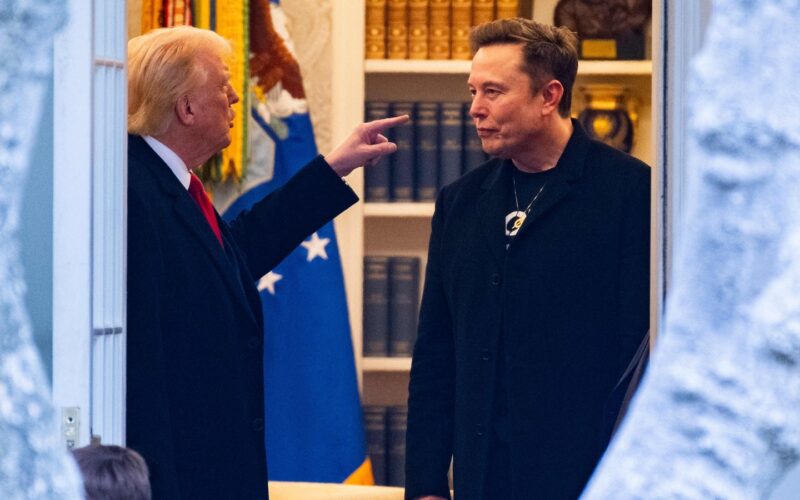Washington, D.C (National Times): In a fiery response to billionaire entrepreneur Elon Musk’s criticism of U.S. spending policies and his hint at launching a new political faction, former U.S. President Donald Trump hit back sharply, accusing Musk of profiting heavily from government subsidies and reiterating his opposition to electric vehicle (EV) mandates.
Posting on Truth Social, Trump said, “Elon Musk knew, long before he endorsed me for President, that I was strongly against the EV mandate. It is ridiculous and has always been a major part of my campaign. Electric cars are fine, but not everyone should be forced to own one.”
He further attacked Musk’s business empire, claiming that without massive government subsidies, the Tesla and SpaceX CEO “would probably have to close up shop and head back home to South Africa.” Trump also humorously suggested, “Perhaps we should have DOGE take a good, hard look at this? BIG MONEY TO BE SAVED!!!”
Trump’s comments came in response to Musk’s recent online tirade over a record-breaking $5 trillion debt ceiling hike included in a new spending and tax bill. Musk mocked the bill as “One Big Beautiful Bill” and blasted both Democrats and Republicans for what he called reckless fiscal policies, dubbing them the “PORKY PIG PARTY.”
Musk’s frustration culminated in a provocative proposal: the creation of a new political entity—the “America Party.” Posting on X (formerly Twitter), Musk declared, “If this insane spending bill passes, the America Party will be formed the next day.”
He continued, “It’s obvious with this debt hike that we live in a one-party country. It’s time for a political movement that actually cares about the people.”
Musk also lashed out at lawmakers who had campaigned on promises of fiscal discipline but ended up supporting the bill, calling them “hypocrites.”
The escalating war of words highlights a growing rift between two of the most influential and outspoken figures in American politics and business. While Trump remains a leading voice for conservative voters heading into the next election cycle, Musk has increasingly positioned himself as a political wildcard, openly challenging both parties and threatening to reshape the political landscape.
Analysts suggest that while Musk’s call for a new party may be aspirational for now, his vast social media reach and growing political commentary are positioning him as a disruptive force in U.S. politics. Meanwhile, Trump’s response serves as a reminder of his combative political style and his focus on undermining green energy policies he believes are being unfairly pushed onto the public.

